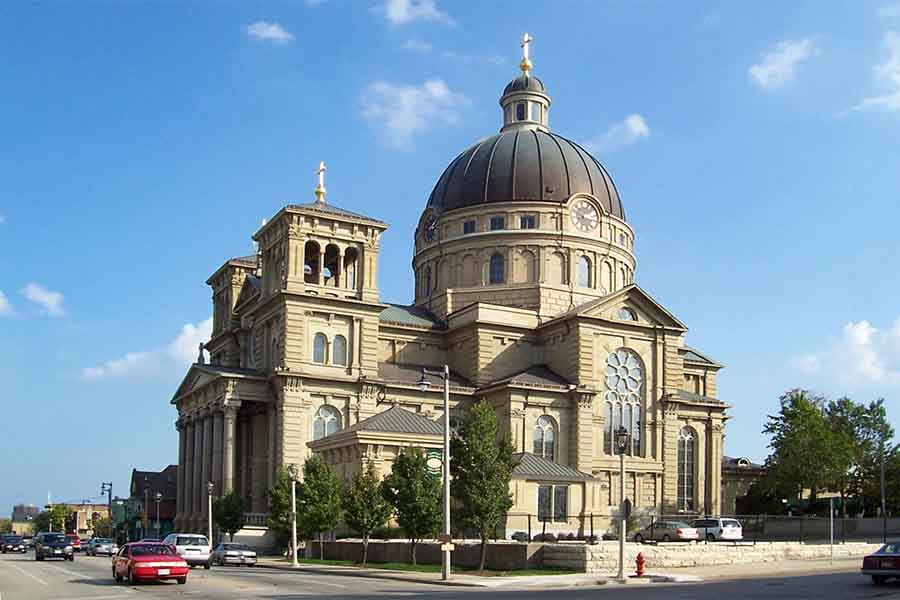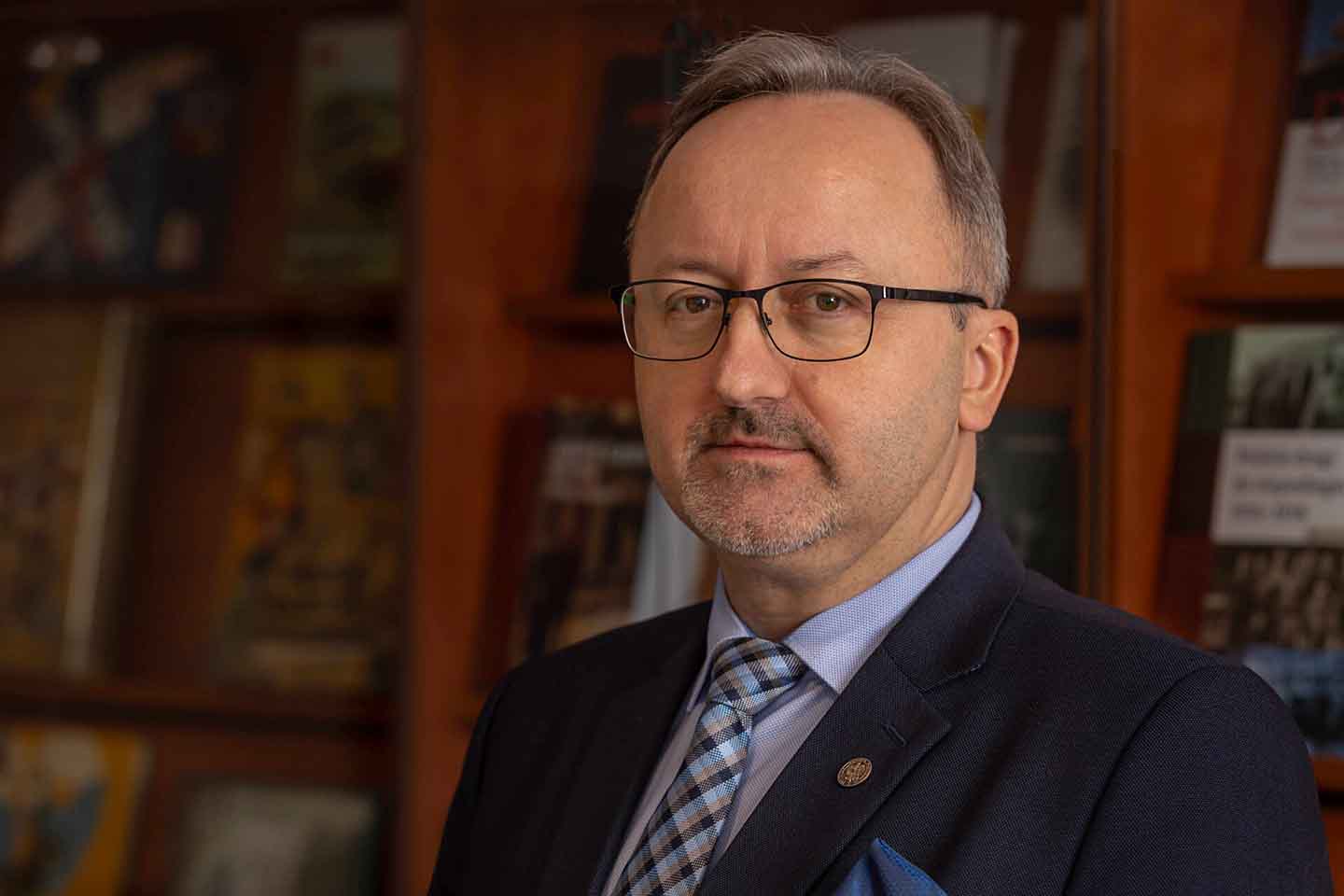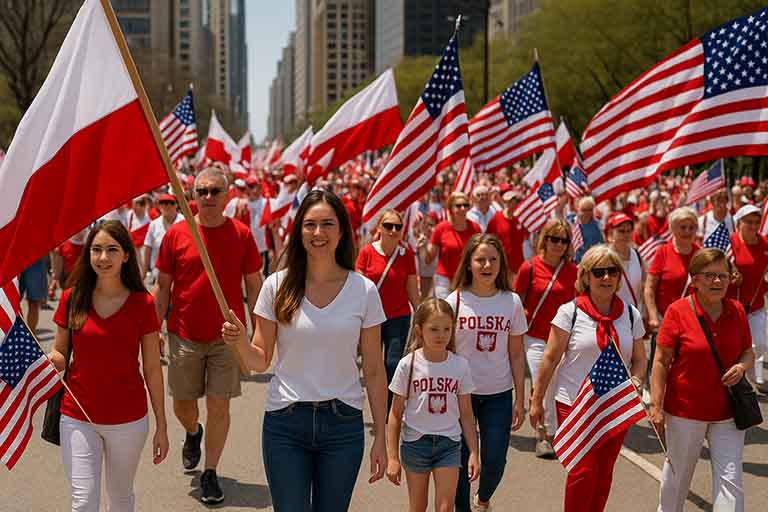Waldemar Biniecki’s article on Polonia (“Will the Polish American Community Experience a Renaissance or Complete Decline and Assimilation?”) published online at Kuryer Polski (kuryerpolski.us) is an important contribution that should be read in both Poland and among Polish Americans. His call for Poles and especially the Polish government to take seriously the importance of Polish Americans is especially welcome and it is a theme that he has emphasized on many occasions. Nevertheless, his article misses certain key points and ultimately falls short of providing a viable path toward a renaissance of the Polish American community for which so many of us wish.

(Graphics: A. Wozniewicz)
We must begin with a very basic question: to what end does or should American Polonia exist? Is it merely to be an arm of the Polish state and act to lobby for and secure Polish state interests in the U.S.A. or is it a cultural and social community with its own life, interests, and needs? The answer should be obvious, but apparently it is not. In the past, Polonia was effective as a force on behalf of Poland precisely because it had a strong and vibrant community life with institutions and cultural achievements of its own that demonstrated its power in the United States.
In Poland today, Polonia is viewed in instrumental terms as a tool to be used when convenient and laid aside when it is not. Although Polonia can and should be an effective force on behalf of Polish interests when those do not conflict with its own needs and priorities, it is not and has not been such a force in this century. National Polish American organizations have completely atrophied and whatever viability they still possess exists in mainly in local communities and state branches of these national groups. (I sympathize with Mr. Biniecki’s experience with the national Polish American Congress. I had an even more offensive experience 25 years ago after I wrote a series of articles calling for a thorough reform and modernization of PAC.)
Mr. Biniecki proposes a program to start a Polonia renaissance based on “learning the Polish language; learning the basics of Polish history and culture, with gradual specialization in business; organizing study trips to Poland and organizing debates about the Polish diaspora and its development.” Unfortunately, these are unlikely to yield the results he seeks. Debates “about the Polish diaspora and its development” have been staged since the early 1970s but the practical effects were small. Good ideas and beautiful dreams abounded but lack of institutional capacity and resources consigned the results of these decades of dreams and debate to archival shelves. Language learning, while important, is impractical as a basis for any significant revival in Polonia. Polish immigration to the U.S.A. largely ended after accession to the EU and children of the last waves of that immigration have now grown up in a mainly English-speaking milieu.
With some notable exceptions, existing Polish schools in the USA are insufficient to provide true fluency to more than a small fraction of those youth. Nor is it clear what the goal would be. Training a cadre of top performing American students to fluency in Polish sufficient for high level success in science, medicine, or technology might be a valuable goal, but such an idea is far beyond any current conception or capacity of Polish education in the U.S. Moreover, such a program, if it even came into existence, would have to be connected to the needs of business, industry, and research in Poland and the U.S.A., so that such students would be fast-tracked into careers where their language skill would truly matter.
Instead, a far more basic approach needs to be considered before any such dreams could be within reach. Quite simply, Poland needs to invest major resources in the diaspora and its institutions. For a century American Polonia gave its blood, talent, and treasure to Poland when it was most in need and today — thanks be to God — Poland is free from the shadow (we hope) of Moscow or Berlin and it is no longer a charity case. It has a thriving economy with great potential and high levels of innovation. The situation of the past is entirely reversed, and it is Polonia that is in the greatest need due in large part to the practice of giving everything to the fatherland and keeping little or nothing for itself.
Viewed from Warsaw, Polonia should be seen as a valuable asset, but one which has deteriorated and is in need of serious and sustained assistance. Moreover, it should be seen in Poland as an important moral obligation. Polish American institutions came to the aid of Poland again and again over the course of a century when Poland and Poles were threatened, weak, impoverished, or under foreign domination. Polish Americans spared nothing for the cause, even volunteering for the Polish armed forces in two world wars. The amount of money provided for Poland is beyond counting but surely totals in the billions of dollars. During the 1920s and 1930s, remittances from immigrants were the number one source of foreign exchange for Poland. This was likely the case in the 1980s, following martial law, but communist statistics buried that fact. It is now time for Poland to repay a small part of that debt with something more than words and symbolic gestures.

Historic Basilica of St. Josaphat seen from a corner of Kosciuszko Park in Milwaukee, Wisconsin. (Source: Wikipedia)
Resources should be invested into existing Polish American institutions in order to preserve the history and develop the culture of Polonia and to create healthy partners for cultural programs and educational exchange. These institutions need to provide jobs and paid opportunities for young adults in fields related to cultural and historical preservation and management, communications, social media, and the arts. Such a cadre — even 50 to 100 individuals — would have a tremendous impact on the future of Polonia and would create the kind of cultural spokespeople who could make Poland and Polish culture accessible to Americans.
Furthermore, resources should flow to upgrading infrastructure for Polish culture in America. In the past few decades Poland has invested heavily in its museum, libraries, and historic and cultural preservation with great results. A mere fraction of the money invested in such endeavors in Poland would have a huge impact on Polonia.
Additionally, Poland must foster a new class of leaders who can overcome long-standing parochial rivalries and problems to revitalize Polish American institutions and to deepen ties to (non-Polish) American partners and even other ethnic communities. A leadership entirely enmeshed in a “Polish ghetto” is useless. “Leaders” who cannot look beyond their own institutions, who prioritize their own egos, and who have not the heart of a servant have caused endless damage. Polonia deserves better. The number of young Polish Americans who will wake up tomorrow morning, look in the mirror, and tell themselves “If I work hard, someday I can become the president of the Polish American Congress!” is zero. Until that changes, one cannot expect much progress.
Finally, the Polish government should institute curricular changes in Polish education to include accurate and reliable information about the history and achievements of Poles in the Diaspora. The level of ignorance about Polonia in America even among educated Poles is a scandal and contributes to the continuous record of failure of state policies toward Polonia.
This effort should be based on several principles:
Treat Polish Americans as something more than defective or ersatz Poles and understand that Polish heritage in North America — which has existed longer than the modern Polish state — is never going to be identical to Polish culture in Poland, nor should it be. Polonia has a history and traditions that are worth sustaining.
Insist that Polonia organizations and centers cooperate with each other across geographical, institutional, and political lines as a prerequisite for receiving any assistance whatsoever. An approach centered on Chicago or New York without including medium sized or smaller Polonia centers will only deepen existing rivalries.
Improve training, staffing, and education for Polish consular officers who have the lead on Polonia issues. The lack of staff and the regular turnover of consular officials (or using these positions as political rewards) is a significant problem on many levels.
While Polonia organizations should be encouraged to develop their own cooperation with American universities, money from Polish sources should not be given to universities no matter how attractive an option this might seem to someone in Warsaw. The results of giving sums of money to universities to start Polish studies centers or chairs of Polish history or culture since the 1990s should be a sufficient cautionary tale in this regard.
Eliminate institutional and bureaucratic obstacles to providing money to worthy causes and encourage partnerships with Polish businesses and foundations to provide assistance to American Polonia. While the Polish government currently gives some relatively small sums of money to Polonia, the amount of paperwork and bureaucracy involved would shock even Franz Kafka.
Cease immediately the practice of certain Polish institutions of plundering cultural or historical collections created by Polonia and bringing them to Poland.
To be sure, various Polish projects to provide some assistance and cooperation with Polonia have existed for over two decades, but it is hard to point to any results. Valuable initiatives were planned, memoranda were written with big ideas, and some programs began only to be mysteriously delayed and later cancelled by Warsaw. Examples of this can be found no matter who was president, or which coalition held more seats in the Sejm. One can only speculate as to why. Certain institutions that supposedly exist in Poland to cooperate with Poles abroad could be eliminated and no one in Polonia anywhere in the world would notice their demise.
Finally, it must be said that American Polonia is often its own worst enemy. Assistance from Poland would be wasted on partners who lack the courage and vision to change and adapt to face their challenges. Our immigrant grandparents earned pennies with backbreaking labor but built churches to rival the great cathedrals of Europe, schools, universities, hospitals, libraries, museums, and helped make America the most powerful nation on earth yet we can barely provide enough funds to keep a few threadbare institutions running. Instead of being filled with shame, we are filled with excuses and many so-called leaders waste time pursuing little rivalries and convening circular firing squads. No renaissance will happen to those committed to remaining in the dark ages.
Good ideas are never enough. If the beautiful renaissance of American Polonia that Mr. Biniecki and many of us dream of is to become a reality, resources and funding will be needed on a scale that will prevent Polonia from being remembered as only “the lost tribes” of Poland.
The views expressed in this article represent the views of the author and do not reflect the position of the Orchard Lake Schools, or the Polish Institute of Culture & Research.
The article was originally published in English in «Tygodnik Polski/Polish Weekly».










